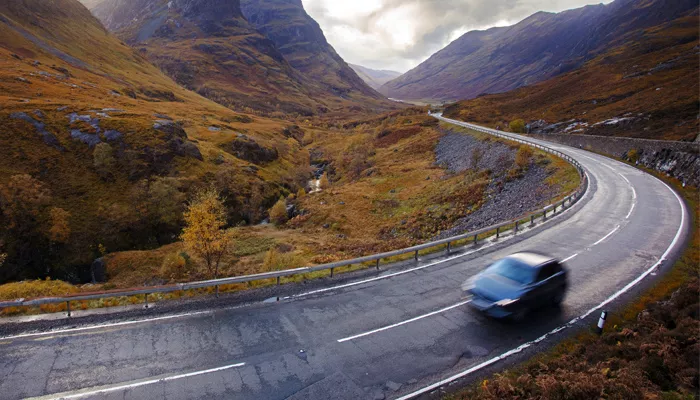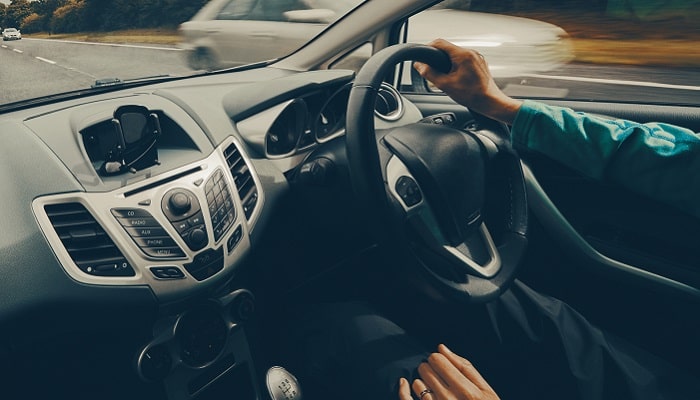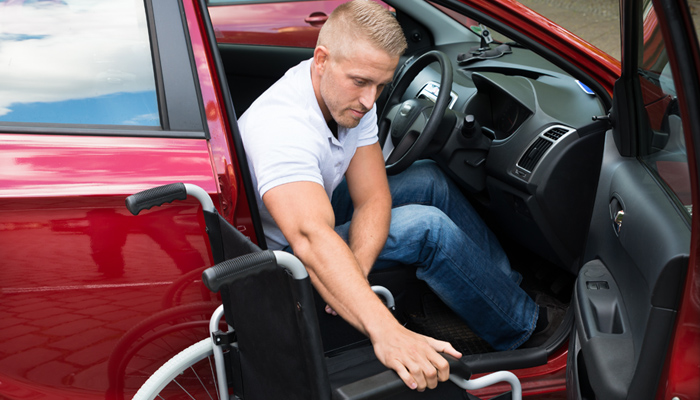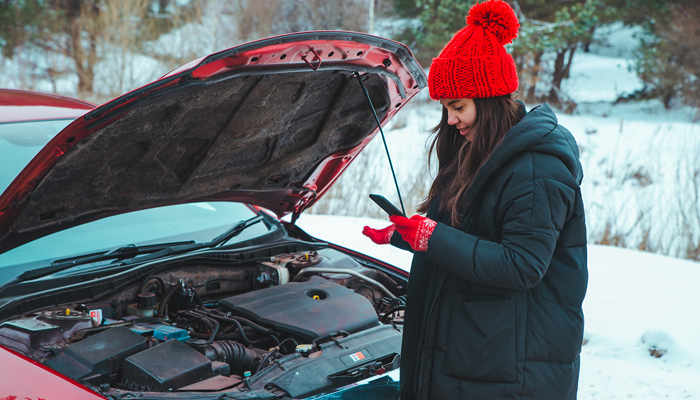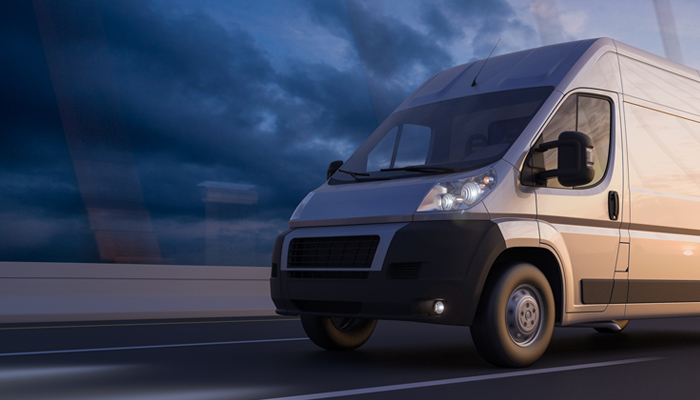Managing the Spreading Fire Risk in Trucks
Managing the Spreading Fire Risk in Trucks
Losing one vehicle due to fire can be a costly and disruptive event. Losing a fleet of vehicles due to fire spreading to several vehicles parked close together could prove catastrophic. Prevention is always far better than cure. So what steps can a fleet operator take to reduce the likelihood of fire, be it accidental or deliberate, breaking out in one vehicle and spreading to many others?
Infrared thermography
Electrical faults are a key cause of vehicle fires. This points to the need to regularly check and service the vehicle electrical system including the battery. Infrared thermography may be a tool that could help an experienced auto-electrician detect faults in electrical circuits that may otherwise go undetected.
Automatic vehicle fire suppression systems
The installation of automatic vehicle fire suppression systems may be an appropriate step, particularly for those operating high value or hard-to-replace vehicles or plant. For hauliers operating trucks with sleeper-cabs, such systems and / or purpose built in-cab smoke alarm systems could also address a significant health and safety risk.
Tightening security to protect commercial vehicles
Fleet operators should take precautions to minimise the risk of an arson attack. Perimeter security needs to be sound. Good lighting is an important deterrent. CCTV installation may be a wise investment. Parking areas need to be kept clear of combustible materials and waste such as pallets that could be used by an arsonist as fuel.
Given the aggregate value of a substantial fleet of business-dependent commercial vehicles, the installation of video smoke and flame detection systems covering the area where vehicles are parked, linked to a fire alarm monitoring service, may one day prove a worthwhile investment.
Fire safety for commercial vehicles
To lessen the risk of fire spreading between vehicles or from vehicles to premises, a several-metre separation distance may be appropriate, though not always entirely practical. A degree of compartmentalisation within the yard through the construction of appropriate fire-break walls may be necessary, providing vehicles can still manoeuvre. It may even be appropriate to consider spreading the parking up of a fleet of vehicles between more than one location to lessen the fire accumulation risk.
Insurance for managing vehicle-spreading fire risk
Ask your property insurer if they would be willing to carry out a fire and security survey that includes advice and recommendations about managing the vehicle-spreading fire risk. The Fire Service may also be able to offer advice on a fee-paying basis.
Fire safety and evacuation planning
Finally, should a fire break out during working hours when staff are on-site, the implementation of a well thought-out and regularly rehearsed fire safety and evacuation plan is essential and could prove a life-saver.
The insurance ramifications of fire for your vehicle fleet
Losing one vehicle due to fire can be a costly and disruptive event. Losing a fleet of vehicles due to fire spreading to several vehicles parked close together could prove catastrophic. The loss of ten coaches, each parked one foot apart, in a fire on 30 December 2018 in Tamworth is a reminder that fires of this nature do happen from time to time.
The insurance ramifications of losing several vehicles in a single event should not be under-estimated. If a fleet operator with a £1,000 each-and-every claim policy excess lost ten vehicles in the same fire, the total excess would be £10,000. For any firm, the impact of a multi-vehicle loss on claims experience will inevitably have a serious and detrimental impact on future motor fleet premiums.
Business interruption insurance for fleet operators
Business interruption insurance policies invariably contain a ‘material damage proviso’ clause meaning that for a business interruption claim to be triggered, there must be appropriate material damage cover in place.
Operators should seek an assurance from their business interruption insurer that in the event of a business interruption claim arising from loss or damage to their vehicles whilst parked up at their premises, providing there is comprehensive motor insurance cover in place, then the presence of such cover will satisfy the ‘material damage proviso’ under the business interruption policy.
This will still be the case even if the motor insurance has been arranged with a different insurer and regardless of any exclusions under their material damage policy relating to motor vehicles.
Self-insuring ‘accidental damage’ motor fleet risk
Major transport operators running a very large fleet may choose to self-insure the ‘accidental damage’ motor fleet risk. For such firms, without an appropriately cautious back-stop arrangement, the consequences of a ten-vehicle loss could be particularly painful. An option to help such firms tackle the accumulation risk is to insure the trucks whilst parked up at their premises under their material damage policy.
It’s not just the vehicle damage costs that need to be worried about. Even more serious can be the ramifications for a vehicle-dependant company’s ability to trade if a majority of their vehicles are destroyed in a single incident, in particular if specialist vehicles or trailers are lost where the replacement time may run into perhaps several months.
Reducing the risk of fire for your vehicle fleet
Prevention is always far better than cure. So what steps can a fleet operator take to reduce the likelihood of fire, be it accidental or deliberate, breaking out in one vehicle and spreading to many others?
- Electrical faults are a key cause of vehicle fires. This points to the need to regularly check and service the vehicle electrical system including the battery. Infrared thermography may be a tool that could help an experienced auto electrician detect faults in electrical circuits that may otherwise go undetected.
- The installation of automatic vehicle fire suppression systems may be an appropriate step, particularly for those operating high value or hard-to-replace vehicles or plant. For hauliers operating trucks with sleeper-cabs, such systems and/or purpose built in-cab smoke alarm systems could also address a significant health and safety risk.
- Fleet operators should take precautions to minimise the risk of an arson attack. Perimeter security needs to be sound. Good lighting is an important deterrent. CCTV installation may be a wise investment. Parking areas need to be kept clear of combustible materials and waste such as pallets, that could be used by an arsonist as fuel.
- Given the aggregate value of a substantial fleet of business-dependant commercial vehicles, the installation of video smoke and flame detection systems covering the area where vehicles are parked, linked to a fire alarm monitoring service, may one day prove a worthwhile investment.
- To lessen the risk of fire spreading between vehicles or from vehicles to premises, a several-metre separation distance may be appropriate, though not always entirely practical. A degree of compartmentalisation within the yard through the construction of appropriate fire-break walls may be necessary, providing vehicles can still manoeuvre. It may even be appropriate to consider spreading the parking up of a fleet of vehicles between more than one location to lessen the fire accumulation risk.
According to Rob Worrell, CEO of Towergate Insurance Brokers: "Vehicle dependent businesses can be vulnerable to the aggregation risk in the event of a fire or similar loss. We would recommend they consider fire breaks and/or keeping some vehicles at secondary locations. We would also urge them to have a well thought-out, documented and rehearsed fire safety and evacuation plan, which, in the event of a fire breaking out during working hours could prove a life-saver."
Truck insurance from Towergate
Sometimes the worst happens, no matter how much care you've taken to prevent fires. Having insurance in place for your truck means that you're prepared for when things go wrong.
Call for a quote on 0344 346 1418 or request a quote online. Alternatively, read more about our truck insurance and what we cover.
For larger vehicle fleets, we also offer fleet insurance.
All cover is subject to normal underwriting terms and conditions.
About the author
 Chris North FCII is a respected industry leader with over 40 years' experience, who has worked in the insurance industry in a variety of roles, accumulating a wealth of knowledge. He is currently Technical Manager for Towergate's motor division, providing expertise on all matters relating to motor fleet insurance, in particular haulage and self-drive hire fleets.
Chris North FCII is a respected industry leader with over 40 years' experience, who has worked in the insurance industry in a variety of roles, accumulating a wealth of knowledge. He is currently Technical Manager for Towergate's motor division, providing expertise on all matters relating to motor fleet insurance, in particular haulage and self-drive hire fleets.
Date: May 09, 2019
Category: Other




